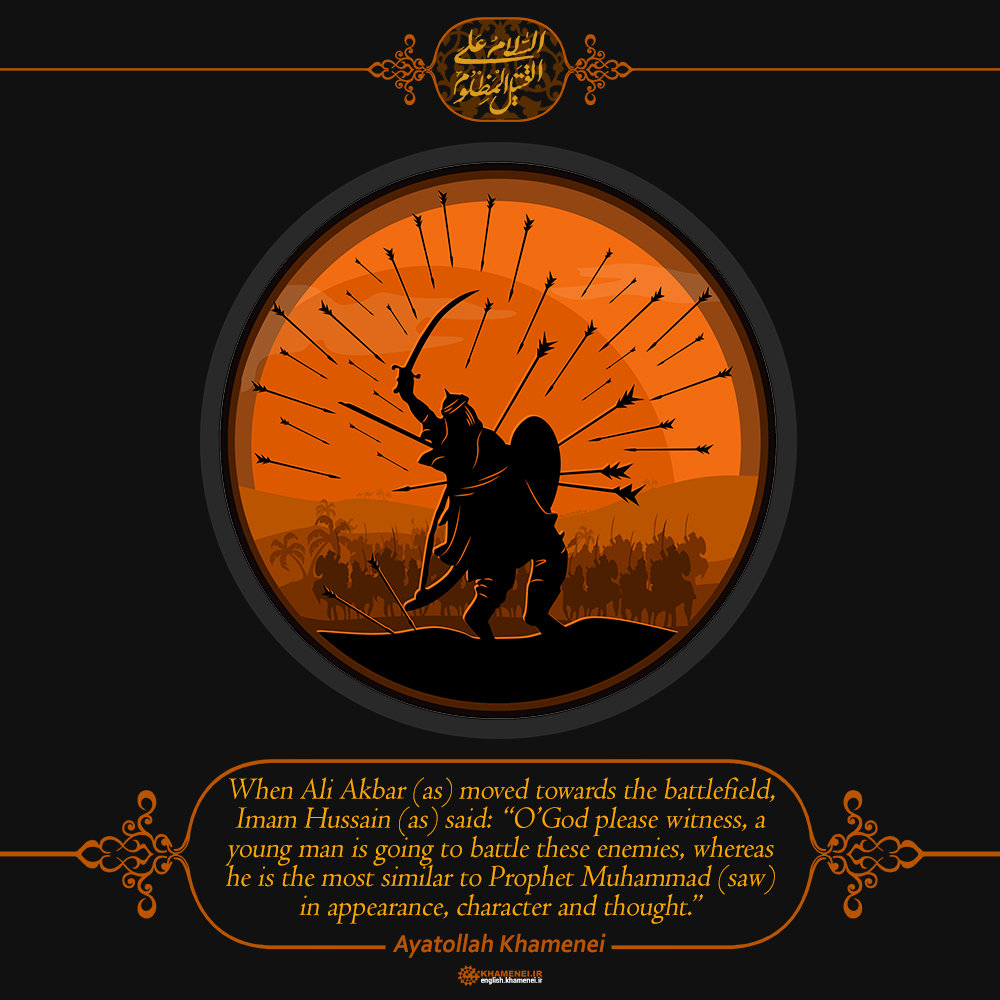A young man approached his father. It has been narrated that Ali Akbar (as) was between 18 to 25 years old; that is to say he was at least eighteen and at most twenty-five. Ali Akbar walked out of Imam Hussain’s (as) camp to fight. It has also been narrated that he was one of the best-looking young men in the world; he was handsome, tall and courageous. He asked his father for permission to fight on the battle field. Imam Hussain granted him the permission right away.
When Qassem, Imam Hassan’s son came to ask for permission, Imam Hussain initially wouldn’t allow it, since he was Imam Hassan’s son. Therefore, he had to beg for permission until he would allow him to join them on the battle field. But when Ali Akbar asked for permission, he granted him the permission promptly, since he was his own son.
He then looked downheartedly at his son who was going to the battle field and would not return. He let his eyes release the tears they held, and he cried.
This is one of the emotional features among the world of Islam; shedding tears in the face of emotional incidents and phenomena. You see Imam Hussain (as) would cry on several occasions in Karbala. This release of tears is not out of despondency; this is due to very strong emotions, as Islam nourishes emotions in a human.
Imam Hussain (as) began to cry. Then he said—and everyone heard him—“O’God please witness, a young man is going to battle these enemies, whereas he is the most similar to Prophet Muhammad (saw) in appearance, character and thought.”
There is a point I have to make here. Imam Hussain was loved by the Prophet (pbuh) when he was a child. He loved the prophet back so dearly. Imam Hussain (as) was about six or seven years old when the Prophet (pbuh) passed away. The image of the Prophet was in Imam Hussain’s mind as an everlasting memory and his heart held the love of the prophet.
Then God blessed Imam Hussain (as) with Ali Akbar. By the time young Ali Akbar grew to adolescence, he looked exactly like the prophet; it was the face he loved so dearly, he adored so affectionately. Now his son looked so much like his own grandfather. When he spoke his voice resembled the voice of the prophet (pbuh). His character and manners were the most similar to the prophet: equally magnanimous, equally generous and equally gracious.
Then he said, “Whenever we missed the prophet, we would look at Ali Akbar.” So, as this chivalrous young man left to the battle field, Imam Hussain (as) called out, “O Son of Sa’d! May God leave you without progeny as you have left me without.” Hazrat Ali Akbar went to the battle field; he fought courageously, knocking out many enemies; he then returned and said, “I am thirsty”. Then he returned to the battle field.
When he expressed that he was thirsty, Imam Hussain (as) told him: “My dear! Continue to fight for a bit little longer; and it won’t be too long until you are nourished by the hands of your grandfather, Prophet Muhammad (saaw).” When Imam Hussain (as) said this to Ali Akbar, Ali Akbar raised his voice in the last moment of his life and said, “O’ father, farewell! This is my grandfather the Messenger of God who is sending you greetings and calls on to you to join us.”
Ayatollah Khamenei,
May 07, 1998











Comments